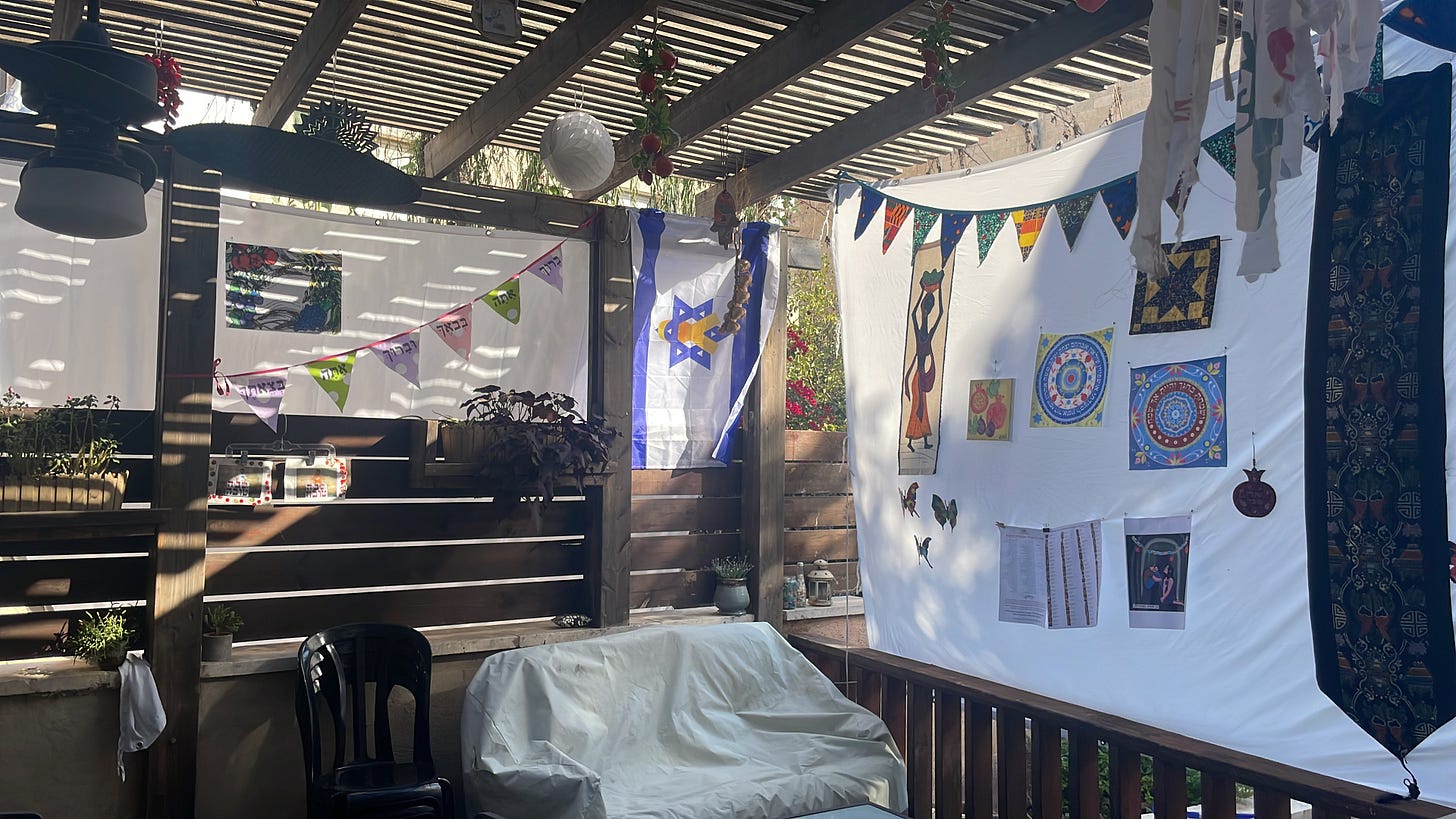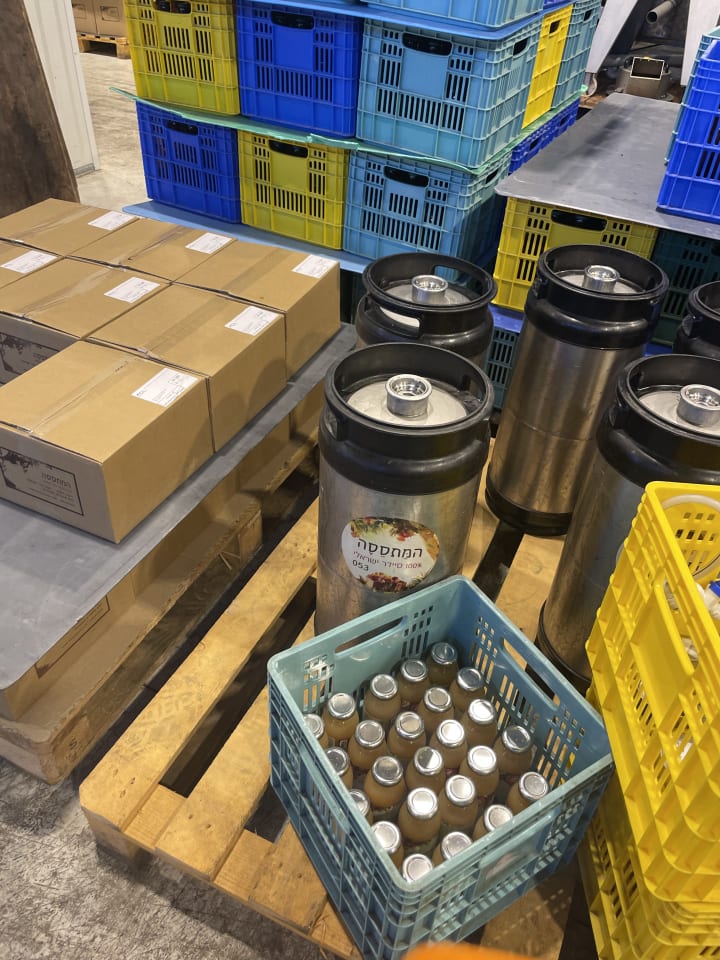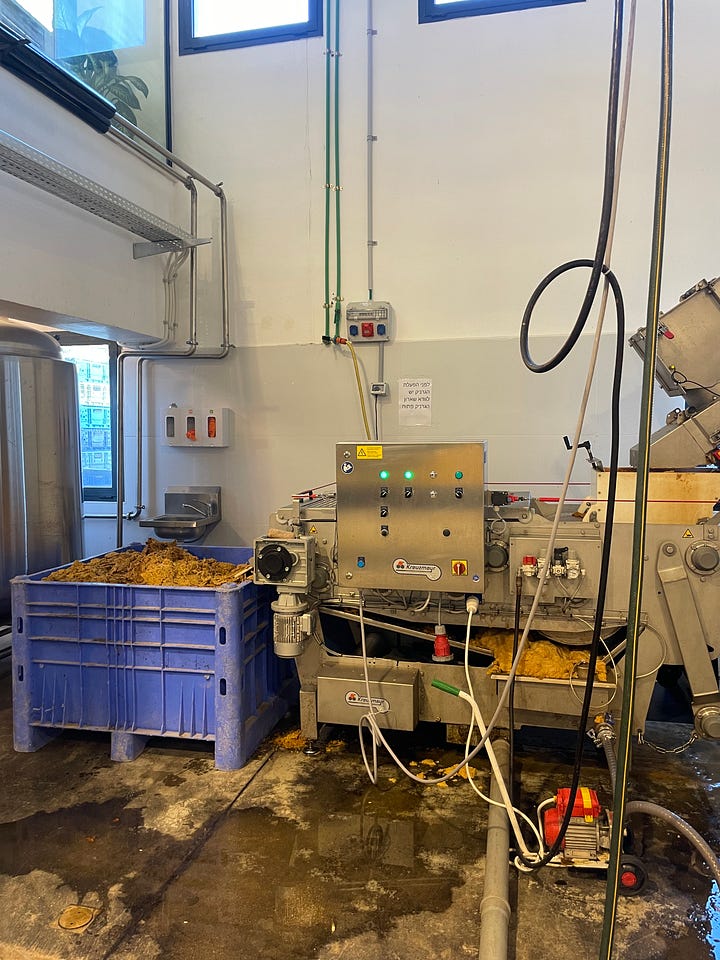It has been a week of political arguments. Or maybe it’s been a week of visiting with people I don’t always see and therefore once we get past the usuals of how are you and what’s new — besides the obvious — we find ourselves digging into the issues at hand, and what we each think of them, as well as what we think of everyone else’s opinions.
It’s hard. It’s exhausting. I don’t enjoy it. But I don’t think it’s a bad thing.
Let me back up.
It was Sukkot this week, and while it was a strained celebration of it this year, marking one year since the October 7 Hamas terrorist attack and awaiting Simchat Torah, the end of the eight-day holiday and the Hebrew calendar date of October 7, we still built our sukkah in our backyard, ate meals of beef bourguignon or blueberry pancakes for breakfast in said sukkah and took some time to see and visit with family and friends.

There was a pizza night in the sukkah with husband Daniel manning his Ooni oven, with my siblings as we chowed down on pizza and drank mango margaritas. Sounds festive, right? It was, except that somehow, at some point, we got into all of it, whether Netanyahu is good at his job or only concerned with his political survival, should the IDF keep battling in Gaza or get to a day-after plan, should Israel/will Israel push for a ceasefire and hostage release plan, and so on and so on.
It was hard and I find it difficult when people I love and respect don’t see things the way I want them to — is that universal or just me? And how fruitful is it to argue about issues that we’ve all discussed many times before?
The next morning, I met a dear school friend visiting from the US for Sukkot, and after we caught up on families, kids, work, she asked me who I was voting for — or maybe I’m reimagining how the conversation turned to the US election, but somehow or another, we got there. And, once again, with the addition of Donald Trump and Kamala Harris, we went back and forth on possible leaders and their motivations, who’s better suited to the job, along with Benjamin Netanyahu and the outcomes of the situation in which we all find ourselves.
We were both surprised by some of the things the other person said, because, as always, it’s hard to believe that someone you love and respect feels and believes so differently than you do. You wonder, “Am I missing something? Do I need to rethink all of this?” Or maybe that’s just me.
I don’t, for the most part, change my mind because of an argument, but sure, I can hear what someone else is saying, and it should give me pause, because that’s the nature of conversation and discussion.
That same friend asked me what she can do for Israel, and maybe she wanted me to say more ceramic vests or Leatherman tools for soldiers — but I wasn’t going to say that. Instead, I told her I think we all need more nuance. We all need to hear what the other person is saying, even if there’s a very slim chance that we’ll agree or change our minds as a result of what we’re hearing.
It’s an act of listening, of paying attention, of recognizing that not everyone agrees with one another or wants to. That’s disheartening, but it’s also real, and for me, it’s always an important reminder, especially of late.
One more story from Sukkot: My 16-year-olds and I spent a few hours volunteering at Hamatsesa, an apple and pear cider factory in the Jerusalem hills, actually located across from the visitors’ center from Castel Winery, that winery that I’ve spent a lot of time volunteering for during the recent months.


We didn’t get to them through Castel, but rather from another friend who’s done a lot of volunteering this year. Our family knows Hamatsesa from buying their apple juice and hard ciders — we’re big fans of the drinks and their process, using fruits grown in that would otherwise be tossed out.
We came on Monday, were given gloves in order to protect our hands from the warm bottles being filled with juice, and then capped, labeled and boxed the individual juice bottles. I always love a factory floor, appreciate the machinery that can fill eight bottles at once, or stick a label on a bottle, or box and tape a carton.
The person in charge of us was a guy named Tal, an out-of-work tour guide who has worked at Hamatsesa off and on since the coronavirus, when he first experienced a significant lack of work guiding tourists. He’s now back at Hamatsesa, this time since December.
After he got us settled and we all worked together, Tal disappeared for a while. When he returned, he apologized for leaving and said he had to leave early, as his soldier son who’s been battling Hezbollah in Lebanon was just hurt by shrapnel and was being evacuated to a hospital in Nahariya.
Of course, we hadn’t gotten to that part of our conversation, if he has kids serving in the army and where they are right now, but now I knew. I knew that not only has he been grappling with work since the start of this war, but has at least one kid in the army and now that son is injured. Lightly, but injured nevertheless.
He smiled and left and we kept bottling the apple juice, until we had completed our last batch of 200 bottles working with another Tal, this one younger and two teenagers hired to work during Sukkot.
It was a different kind of nuance, one without as many words, as I thought about how little I knew about the other people working with us that afternoon, but sometimes that’s also okay. You get to know people, even a little, when you don’t have long conversations, and that brings about a different kind of familiarity, maybe some sense of understanding of the other.
Here’s to nuance and familiarity, and getting us through the last days of this Sukkot.



